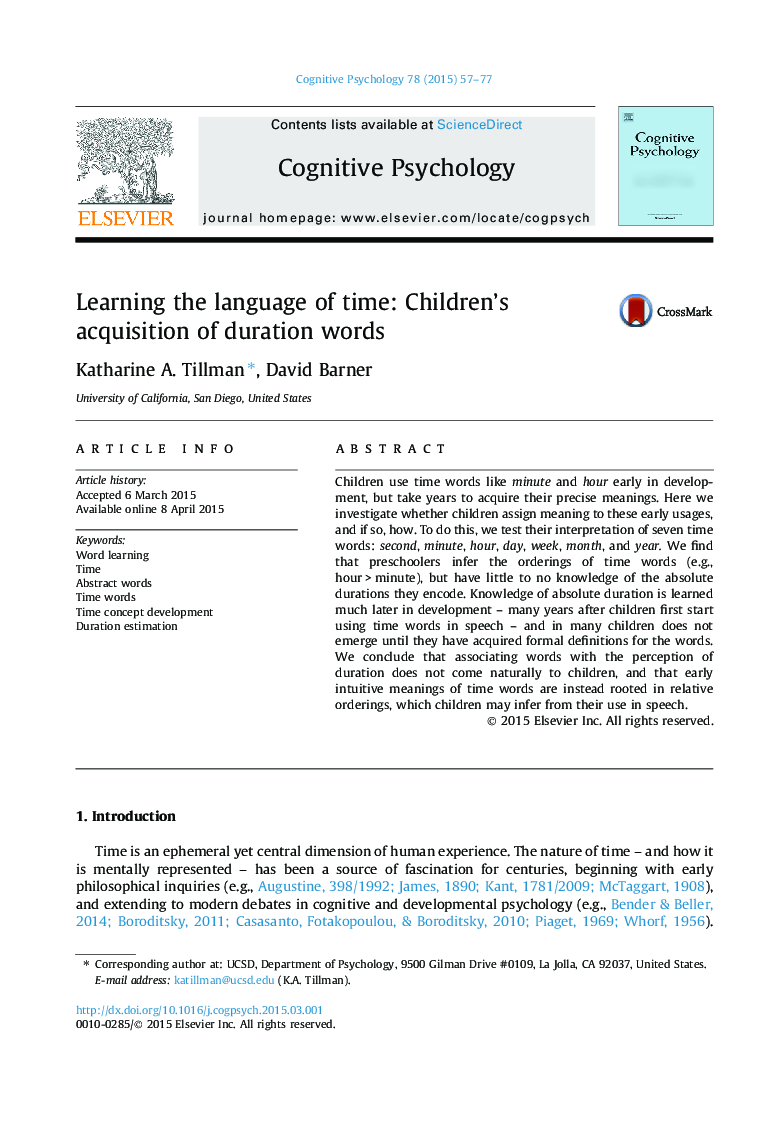| Article ID | Journal | Published Year | Pages | File Type |
|---|---|---|---|---|
| 916852 | Cognitive Psychology | 2015 | 21 Pages |
•Children learn time words as an ordered category, before mapping them to durations.•At 4, children can contrast, e.g., hour vs. min, choosing the longer duration.•Until 7, they struggle with 2 hrs vs. 3 min, and estimate time word durations poorly.•Mapping time words to perceived durations may require learning formal definitions.•This pattern is also observed for other abstract words: numbers, colors, and emotions.
Children use time words like minute and hour early in development, but take years to acquire their precise meanings. Here we investigate whether children assign meaning to these early usages, and if so, how. To do this, we test their interpretation of seven time words: second, minute, hour, day, week, month, and year. We find that preschoolers infer the orderings of time words (e.g., hour > minute), but have little to no knowledge of the absolute durations they encode. Knowledge of absolute duration is learned much later in development – many years after children first start using time words in speech – and in many children does not emerge until they have acquired formal definitions for the words. We conclude that associating words with the perception of duration does not come naturally to children, and that early intuitive meanings of time words are instead rooted in relative orderings, which children may infer from their use in speech.
